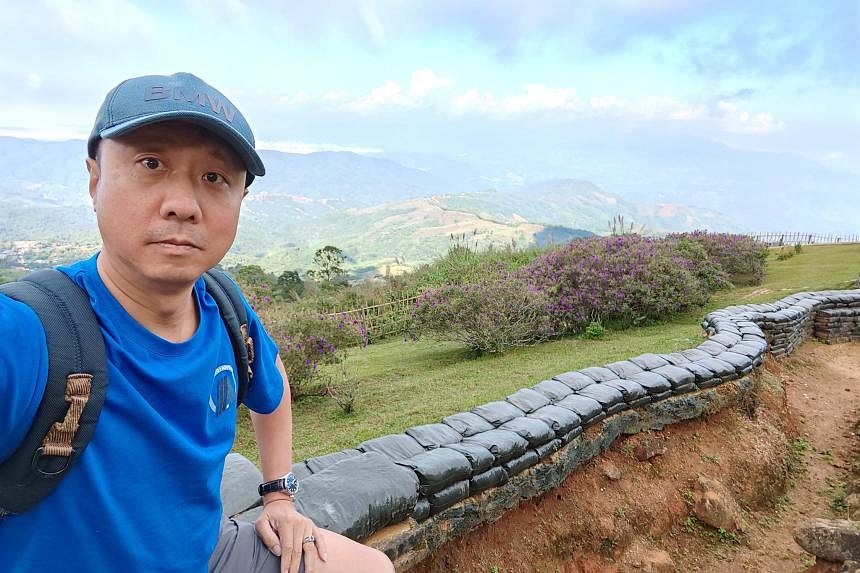
Mr Able Wang is a seasoned overlander who has made it a habit to drive to Thailand from Singapore alone once every three months since the Covid-19 pandemic. PHOTO: ABLE WANG
SINGAPORE – There are people who drive, and then there are drivers.
But retired financial consultant Able Wang, 59, draws a finer distinction still: There is the driver’s driver – smart, skilled and thoroughly obsessed with the road.
In October 2023, Mr Wang made headlines for an expedition to Yading, China, setting out from his Housing Board flat in Dover to drive 11,000km over 27 days in his BMW hatchback.
“People couldn’t believe my little car could make the journey. It’s 12 years old,” he said.
Mr Wang has good reason to put his faith in the car. He has taken his wagon on at least seven other northerly drives, heading up to Thailand from Singapore alone once every three months since the Covid-19 pandemic.
His decision to opt for a hatchback may be puzzling to “overlanders” – who usually favour a 4x4 or larger sport utility vehicle (SUV) for its off-roading capabilities – but, then, he is not in that camp.
Overlanders – as they call themselves – are travellers who make long journeys over land, across multiple countries. Many take difficult routes such as unpaved roads that make for interesting sightseeing and no-frills camping grounds.
Mr Wang’s goal is more singular. “I go for the driving. Scenery is part of it, but the road is No. 1,” he said.
For that, he needs a good car, one that lets him “feel the road”, transmitting its texture from the tyres to the suspension to the steering wheel, to crackle beneath his fingers, he said.
A burly car would cut that humming cord.
As a rule, he eschews the shortest route for one that promises the most pleasurable drive. Often, that means detours for hours on back roads marked by hairpin turns and hilly terrain.
“I’m happiest on those roads, manoeuvring those bends in a car with nice handling,” he said.
His favourite road is Thailand’s feted Route 1148 – a mountain pass that unfurls down the flank of the northern Chiang Rai province to deposit motorists in Nan, wild-eyed from its lavish bends.
“Endless curves on a perfect tarmac, better than anything in the European Alps,” said Mr Wang, quoting the Porsche-run magazine Curves.
These winding roads quash the fear of falling asleep at the wheel, keeping him alert for all seven or eight hours he spends driving on an average day. “Iron butt,” he said.

In October 2023, Mr Able Wang made headlines for an expedition to Yading, China, setting out from his Housing Board flat in Dover to drive 11,000km over 27 days in his BMW hatchback. PHOTO: COURTESY OF ABLE WANG
But those numbers take a toll over the 20-plus uninterrupted days the journey takes, and he must take pains to keep himself physically and mentally in shape.
Mr Wang is up by 6am every day when on the road, to do push-ups and squats, and have breakfast. By 7am, he is tearing down the street, eager to get as much driving in as possible before lunchtime, when he is tempered by midday drowsiness.
He travels with his pillow because good sleep is key to a safe drive, he said, and the modest dwellings that fit his lean budget of no more than $150 a day – including petrol – rarely get the bedding right. Nor is he averse to taking a power nap in the car, often pulling into quiet corners for a quick snooze.
His disciplined routine becomes more important on solitary drives back to Singapore, when the excitement of going on a journey can no longer sustain him, he said.
“There’s nothing to look forward to, you’re just going home.”
Is it always a mirthless prospect? No, said Mr Wang, for he gets to plan his next trip.
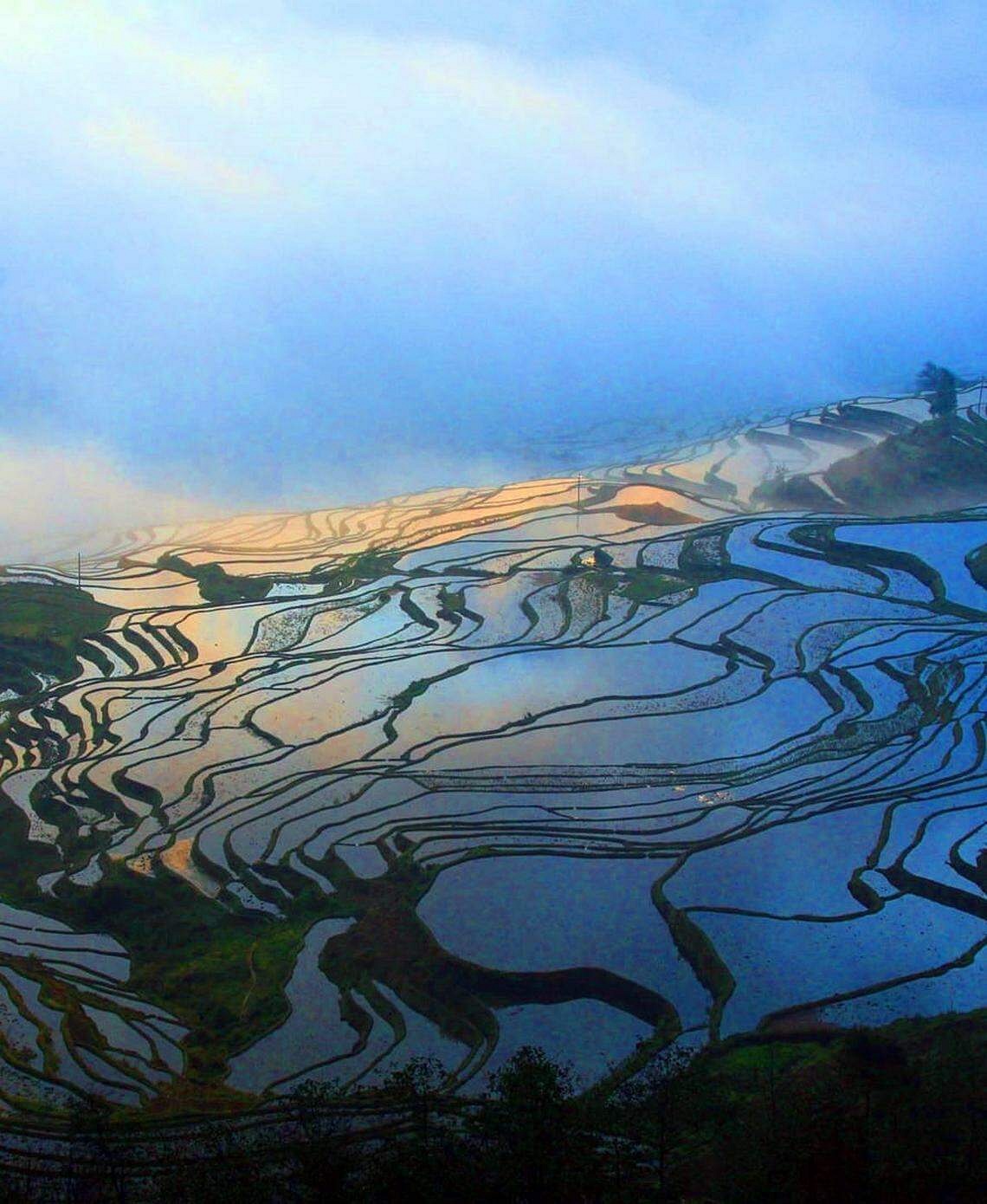
Although his calendar is usually filled with plans for solo excursions, he also organises an annual trip with five or six of his buddies.
Most recently, he took a convoy on a 10,000km jaunt to Thailand, departing on Dec 6, 2023, and returning days before the new year.
These group outings are planned by Mr Wang at least six months ahead, with the route and itinerary adjusted to suit his party’s stamina, ability and taste.
When his sons – aged 30 and 26 – go along, he makes sure to punctuate hard driving with activities such as white-water rafting and sightseeing, he added.
His obsession with driving began in the days before the Internet when, as a schoolboy, he took eagerly to motoring magazines. By 17, he had obtained his licence and immediately hiked it to Shah Alam, Selangor, intent on learning “real driving”.
There, he enrolled in the Harvey Yap School of Advanced Driving – helmed at one time by Malaysian racing titan Harvey Yap.
The kind of artless steering needed to get from points A to B never interested Mr Wang, and to this day, he rarely drives in Singapore, he said.
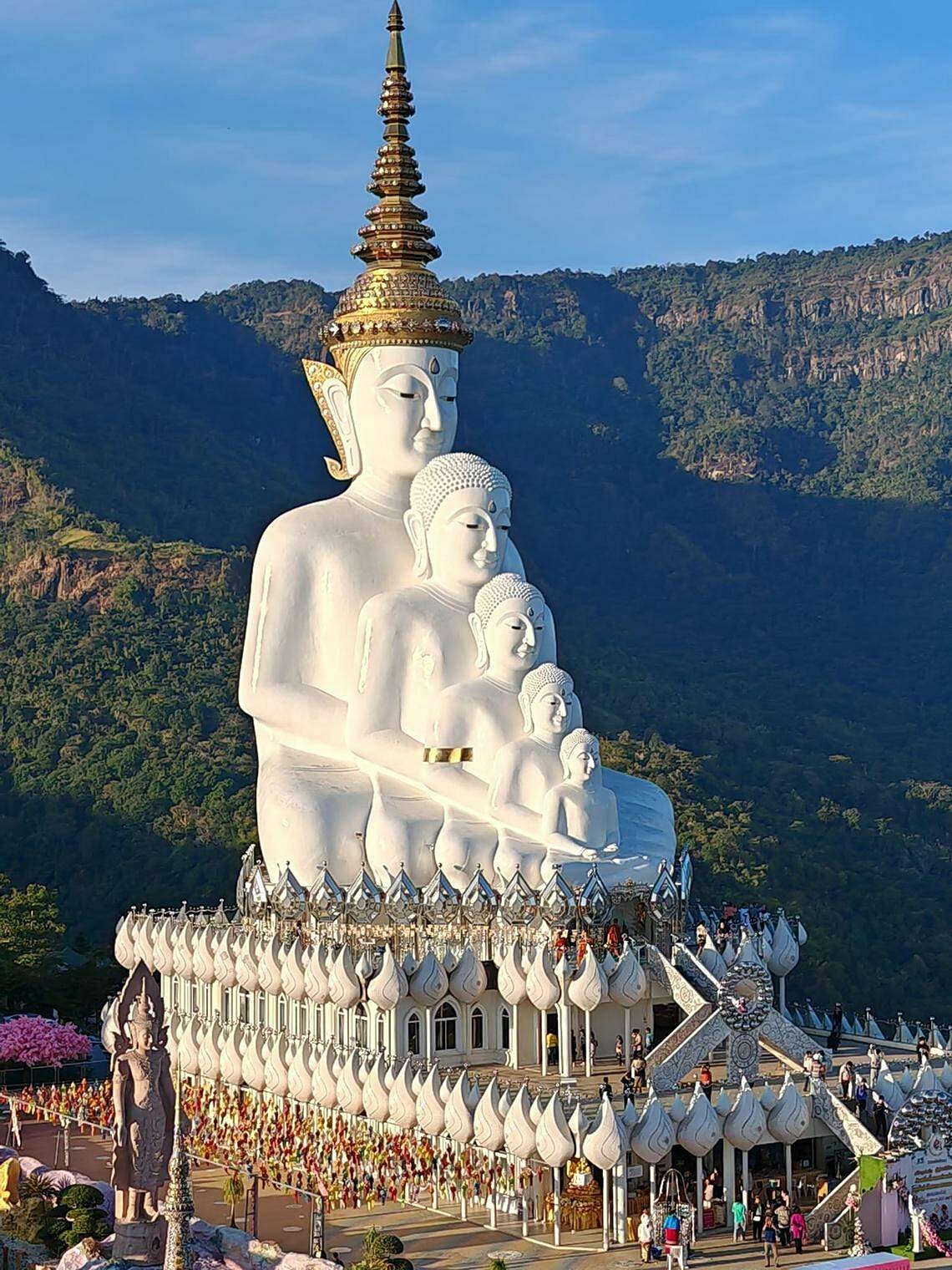
Young adulthood in the 1990s meant road trips to Malaysia every weekend with an equally passionate crew, culminating in his first marathon drive from Singapore to Phuket at age 34.
Yet, somewhere along the way, these trips ceased. “Friends got married, I moved away, life happened.”
The pandemic was the turning point.
“After Covid-19, I told myself, I’m probably not going to get a job any more, so I’m just going to drive till I’m satisfied.
“That day hasn’t come. I keep wanting to go further and further.”
At 59, he reckons he has about 10 good years left in the tank for the kind of driving he wants to do. It is the sort of forecast that would fell a younger man, but the end of the road does not bother Mr Wang.
“To me, my heart is still 35 years old. I don’t intend to stop driving until I can’t.”
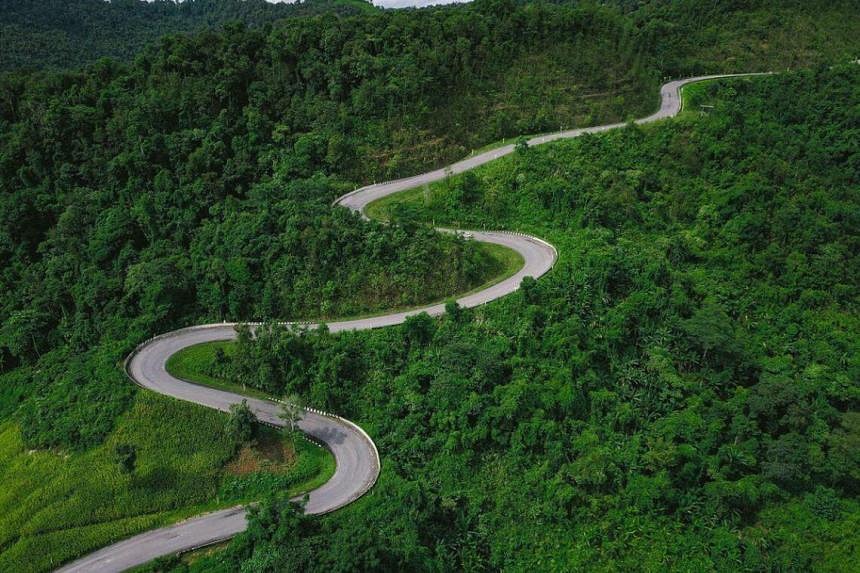
In August 2023, a procession of 12 cars set off from British capital London for a 98-day drive back to Singapore. The convoy would cross 21 countries and 25,000km to return to home soil in November.
In one SUV – a Subaru Forester – sat Mr Loh Siew Yean, 67, and Ms Sharon Loo, 65, who have navigated decades of road trips together during their marriage.
The expedition was their longest one yet, beating the 92 days they clocked in 2019 on another London-to-Singapore “fly and drive” – when cars are flown abroad for owners to drive back home in.
Both mega-trips were organised by the Automobile Association (AA) of Singapore – the motoring group that has offered overlanding packages to its members since 1979, when these outings were still known as “driving holidays”.
AA now dubs the trips “auto-ventures”. But no matter what they are called, the Lohs are hooked.
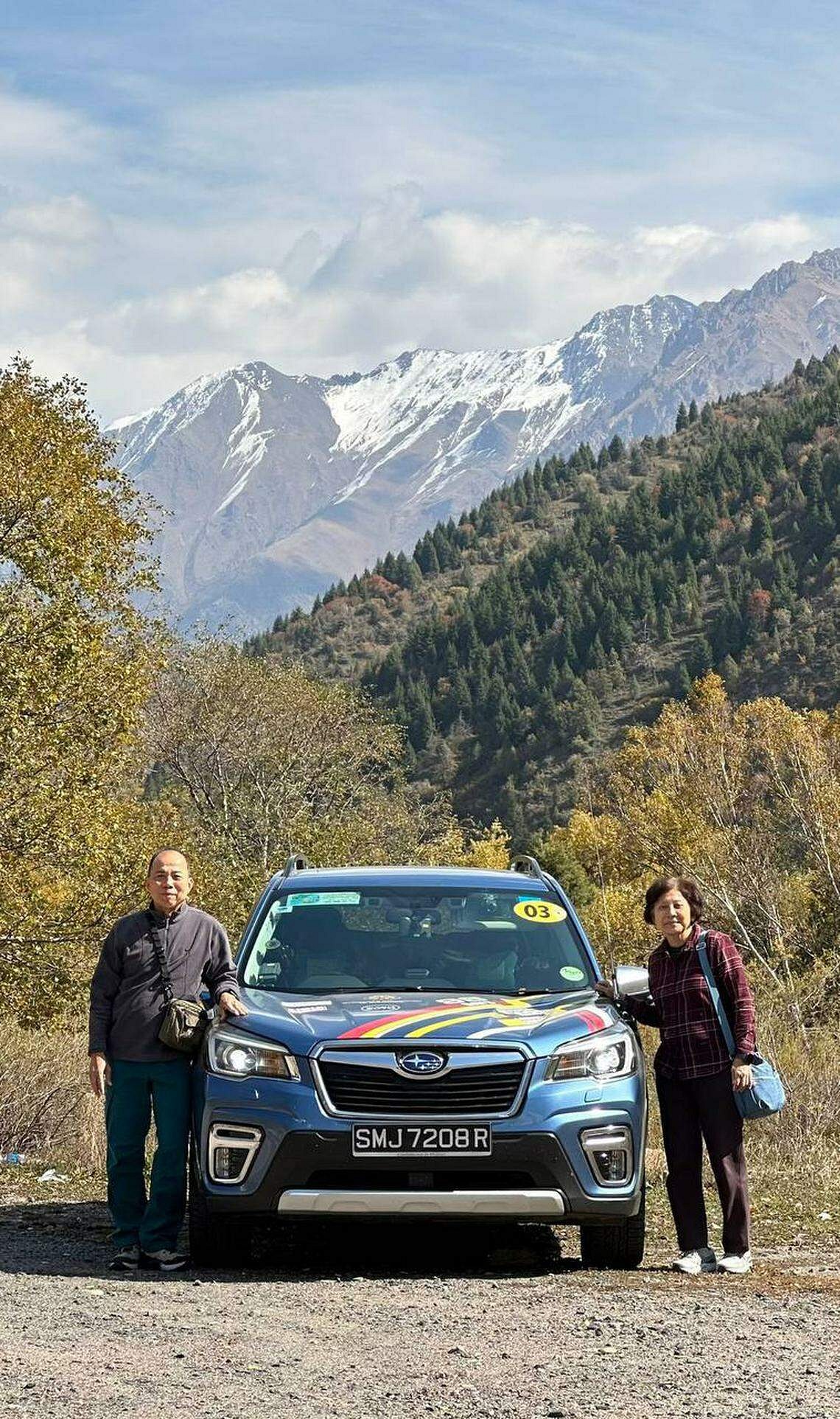
Mr Loh, a retired director, has been on at least 16 trips with the group in the last five years, two of which were throttled by Covid-19 travel restrictions. In 2023 alone, Ms Loo, a housewife, joined her husband on four trips.
The outlay can be hefty. The couple forked out about $100,000 in total for their 98-day excursion, Mr Loh said, with AA packages priced at more than $40,000 a head, not including the cost of petrol and freight transport for their car.
Yet, the option of outsourcing the drab logistics that come with any overlanding trip proved irresistible.
Said Mr Loh: “There’s no need to do any planning. AA does it all – the route, the hotel, the itinerary, the guide. It’s hassle-free.”
Material comforts are also taken care of, with four-star hotel stays on the itinerary nearly every night, he added.
Above all, Mr Loh said, there is the security of travelling in a convoy – which especially appeals to the veteran road-tripping couple who notched up plenty of drives on their own before joining AA in 2018.
The Lohs spent 25 years in Hong Kong and Shanghai because of Mr Loh’s job, returning to Singapore only after his retirement.
In those years, they seized every chance they got for driving holidays, passing over the standard city vacation to map out overseas road trips lasting weeks.
It was hard work, especially since driving itself is physically challenging, said Mr Loh, who has never split driving duties with Ms Loo.
Still, it is the only way to really “see a place” and to look beyond its tourist attractions, he added.
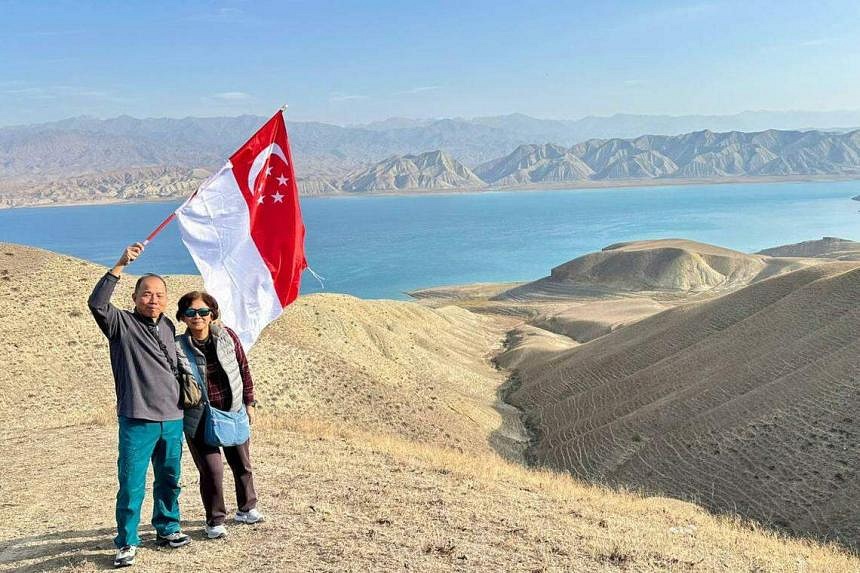
Before Global Positioning System (GPS) technology was perfected, this sort of travel was arguably more treacherous. In 2008, the pair got lost in the woods in Hokkaido, Japan.
Ms Loo said: “We were on a narrow dirt road and it was getting dark. The GPS kept saying to go straight, but there were only trees, just trees and no way out.”
Mr Loh had all but lost hope when they emerged into the light of a small town, where they gratefully bunked down for the night.
But getting lost was sometimes lovely. Another wrong turn on the same trip in late October led them to a little village that was mad about Halloween.
“There were carved pumpkins lining all the streets,” said Ms Loo, and the couple whiled away half the day at the charming outpost.
Of course, in a convoy in which people are carrying walkie-talkies, the chances of getting lost are small and one can feel very safe, said Mr Loh, but no overlanding journey is without risk. Punctured tyres from off-road paths, dangerous weather and the inherent uncertainty of being on the road are familiar hazards for the questing couple.
That same sense of uncertainty is the beating heart of every road narrative, inspiring the canon of work best represented by Jack Kerouac’s 1957 novel On The Road and Wim Wenders’ elegiac Road film trilogy (1974-1976).
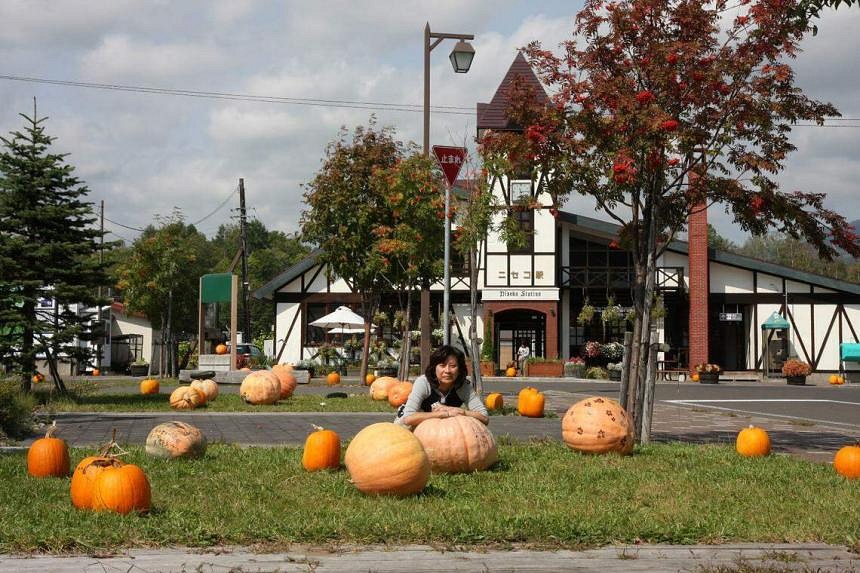
There are small troubles as well, like weak-willed bladders and interminable border crossings with nothing to eat for hours but packed biscuits and instant noodles, Mr Loh said.
On the way to Singapore from London in 2023, members of their convoy had to relieve themselves in the open desert. A wall of cars became a makeshift fence between the men and women as both sides went about their business.
So, is it demanding, expensive and not entirely without risk?
Yes, but it is worth it, said Mr Loh, though he would add just one tip. “You need a partner.”
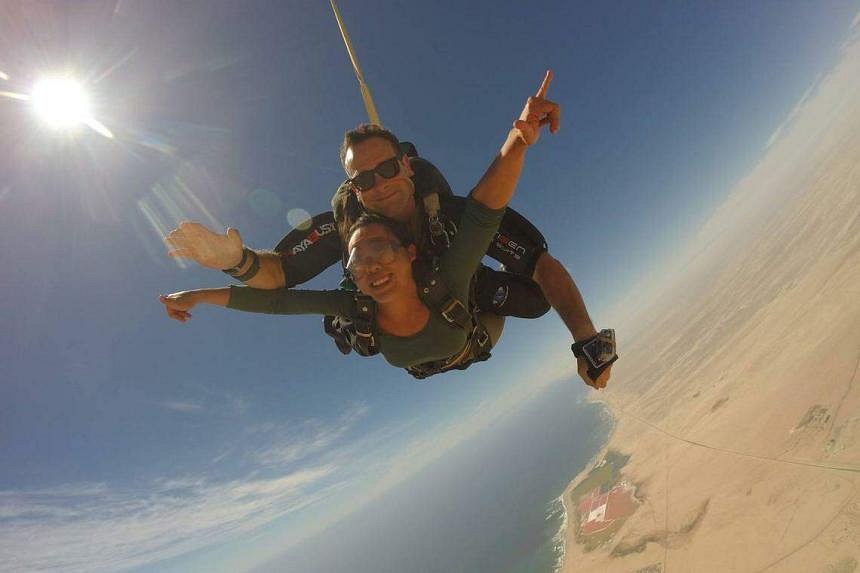
In Tanzania’s Serengeti National Park – also known as the Eden of Africa – former corporate lawyer Joanelle Toh came face to face with an elephant.
A bolt of fear dissolved into awe as the larger mammal eyed the smaller and Ms Toh quickly realised the beast had come in peace, padding its way through the well-trodden land that she was only a guest in.
She would stay on the continent for 40 days, making her way south in a tricked-out 4x4 bus with 22 strangers in her tour group.
With their guide at the wheel, the motley crew of under-35s trundled through Kenya, Tanzania, Botswana, Malawi, Zambia, Zimbabwe, Namibia and South Africa – about 10,400km in all.
Ms Toh set out for Africa in October 2023, some time between leaving her job and finding a new one, in pursuit of novelty and a “sense of space”. She was the only Singaporean in her group.
Friends, she said, were “horrified” at the time and uneasy about her destination – a continent decidedly less popular with Singapore holidaymakers.
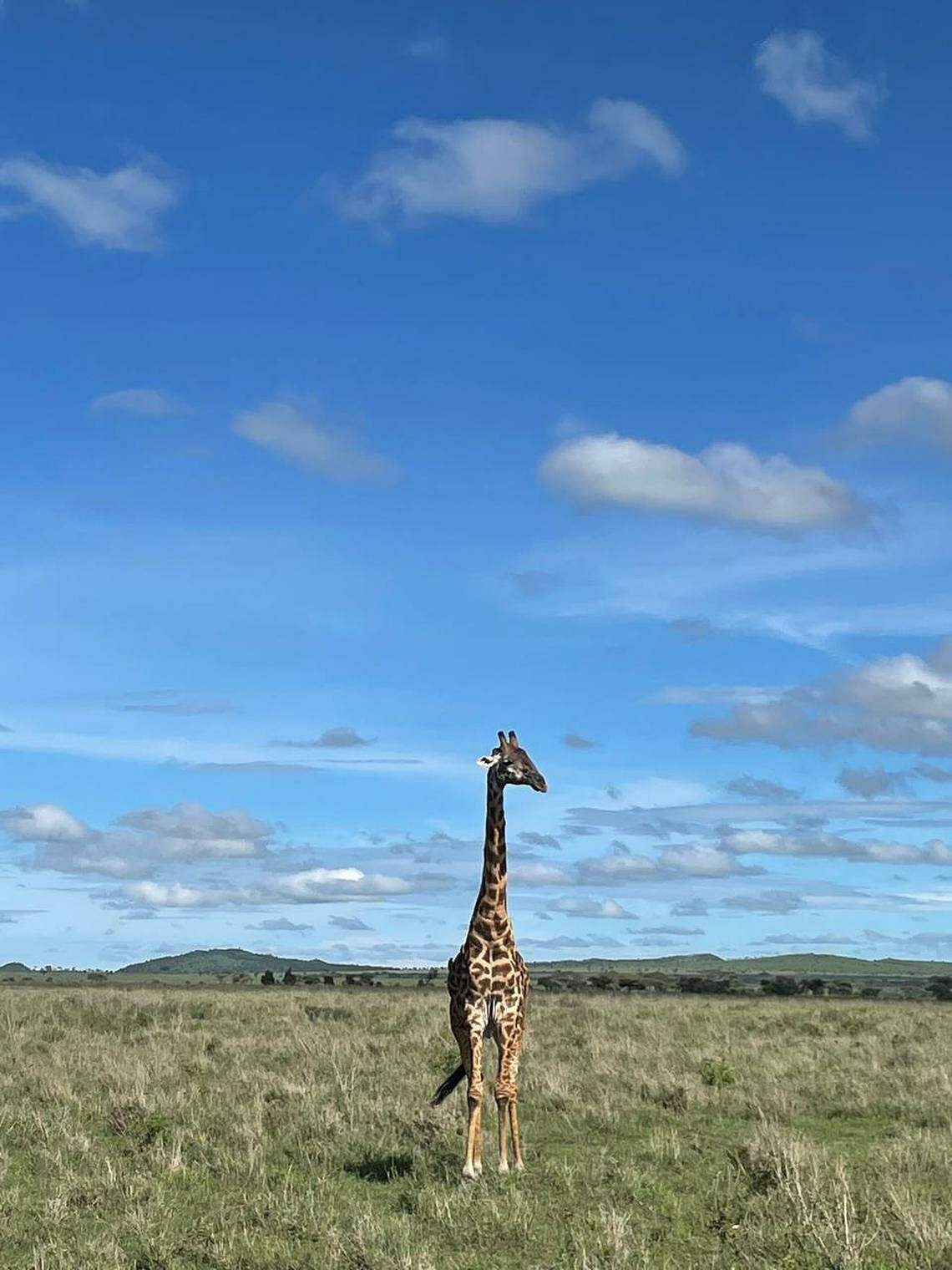
But Ms Toh, 27, had had enough of the ambient pressures of the city and the slow convergence of all the world’s metropolises so that each one seemed to take on the pallor of the others.
Instead, the $6,000 overlanding package she signed up for with travel firm G Adventures promised camping on most nights, meals cooked over open fires and the wide, unbroken road.
For travellers like Ms Toh – who has a driving licence, but is not keen on driving – these tours satisfy that near-universal hankering for the road.
The jury is split on whether these tours count as overlanding. Purists argue that driving is a key part of the experience, while more liberal overlanders are happy to accept passengers.
But even a vicarious overlander cannot help but share in its basic joys.
To start with, there is the heady pleasure of the long-distance drive, so conducive to looking around.
Entire days were spent on the road in a vehicle without a built-in toilet, said Ms Toh, and being on the move for at least four hours every day was par for the course.
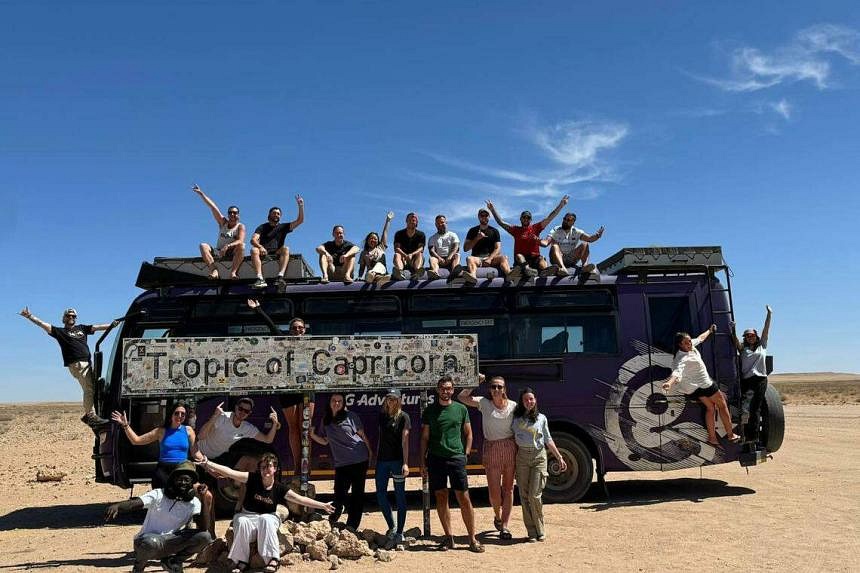
But she hardly minded it, seizing instead on the particulars of the changing landscapes.
“Kenya was very green, full of forests that became villages, and then barren land in Malawi, Zambia and Zimbabwe,” she said. “A bit farther, it turns rocky and then, suddenly, you see the beach.”
The shifting scenery was one of the best parts of her journey, she said, likening each new sight to proof of moving forward – what, in short, is the simple glory of motion.
There was also the unexpected ease of eating and sleeping with the earth. Most nights, Ms Toh and her company pitched tents and built campfires for a simple makeshift grill.
She took to the set-up without fuss. “At the start, it took me about 10 minutes. But by the end, I could pitch a tent in five.”
One night, she climbed a plateau and, with only a thin mattress and sleeping bag in hand, she made her bed under the stars.
Atop the rocks, she felt once more that obvious but elusive truth: The world is large.
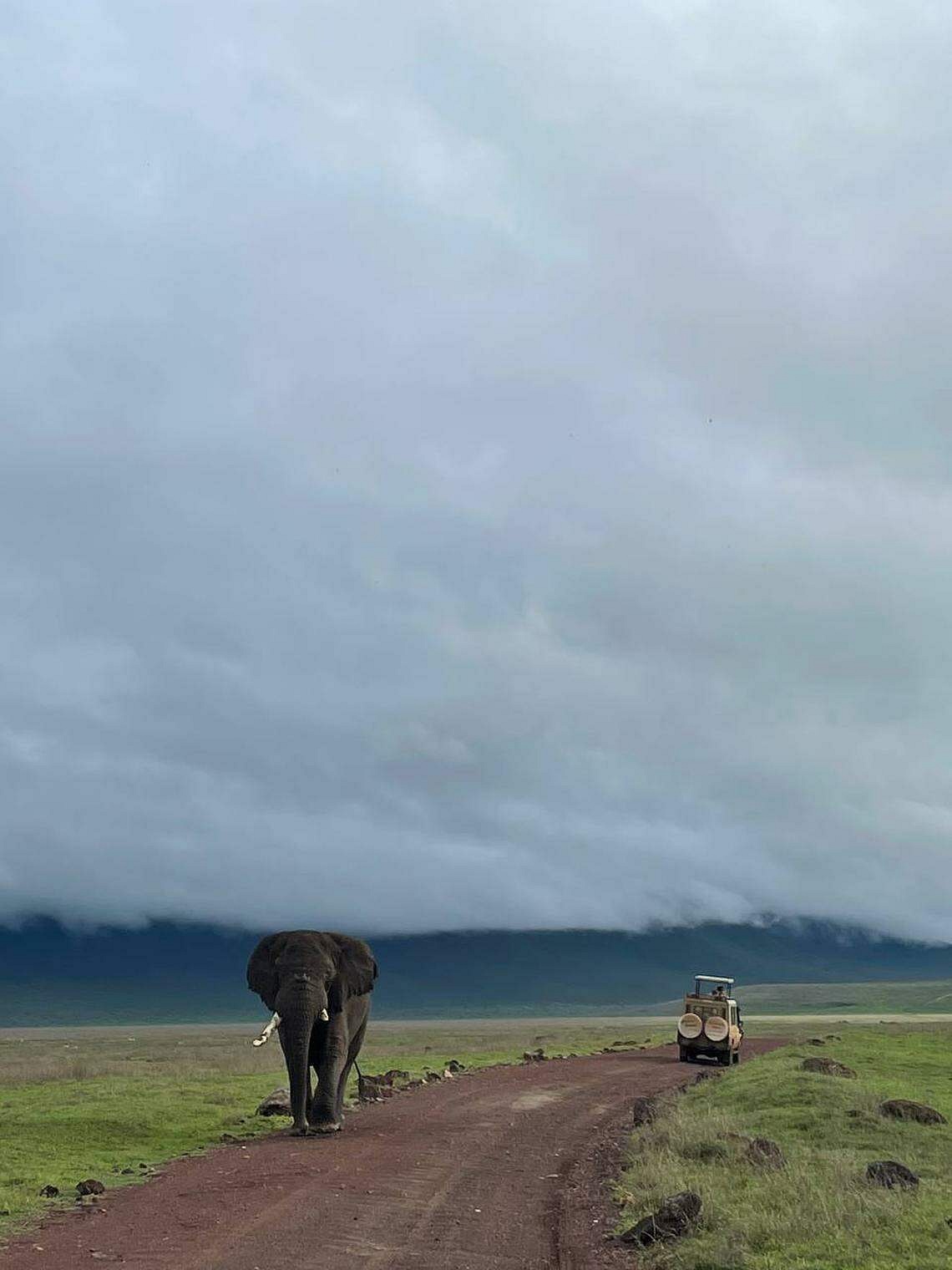
“It was a very important feeling, that sense of realising how small you are in the grander scheme of things, how much more of the world there is to see.”
A fact too easily obscured under the dome of corporate life, she added.
By the end of her trip, the strangers in her tour group had become friends, and she had secured a new job as a lawyer for a company, after doing virtual interviews at campsites.
She said: “I’d questioned if all sense of wonder had left my life, but I was happy to observe that I was still capable of feeling that way about things.”